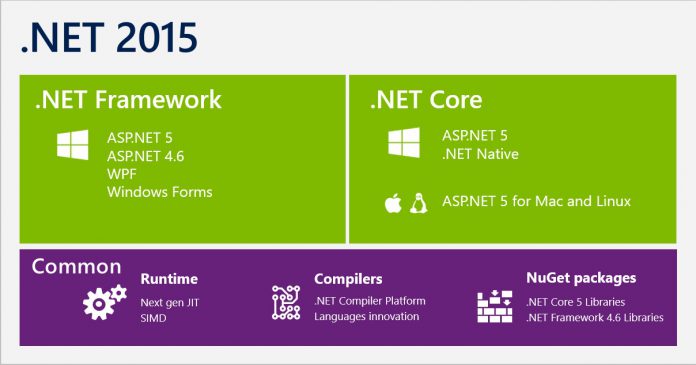The company says its focus for .NET Core 2.0 was to make the API experience more consistent across .NET versions. This was important because there has been a jump from 13,000 APIs in .NET Standard 1.6 to 32,000 in .NET Standard 2.0. You may remember that .NET Core has been the forked version of .NET framework since 2014. Microsoft used Core as its cross-platform open source version that works on Windows, Linux, and Mac. Microsoft points out that many of the new additions are for .NET Framework. Because of this, developers will have a smoother experience porting their existing code to .NET Standard. So far, the newly released .NET Standard 2.0 works on .NET Core 2.0, Mono 5.4, Xamarin iOS 10.14, .NET Framework 4.6.1, Xamarin Mac 3.8, and Xamarin.Android 7.5. Microsoft says Windows 10 Universal Platform (UWP) support will be added later in the year. In terms of performance boosts, developers will see improvements in framework and runtime. New platform support includes SUSE, Linux Enterprise Server 12 SP2, Mac High Sierra, and Debian Stretch.
F# Plans
Microsoft also discussed F# in .NET Core 2.0. The company says it has been working on F# quality since the release of Visual Studio 2017. The goal was to increase performance in .NET Core 2.0 and Standard 2.0. Importantly, F# can be built from source in .NET Core, starting with this release. Microsoft says this was important for Linux users who want to build a development stack from source. The sources will be sent to RedHat Enterprise Linux. With the release of .NET Core 2.0 and .NET Standard 2.0, F# will be built in with the .NET SDK and CLI.




